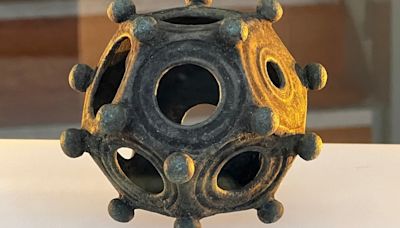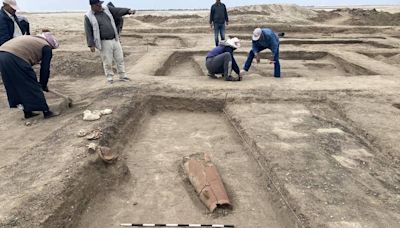Search results
Archaeology or archeology [a] is the study of human activity through the recovery and analysis of material culture. The archaeological record consists of artifacts, architecture, biofacts or ecofacts, sites, and cultural landscapes. Archaeology can be considered both a social science and a branch of the humanities.
- Antiquarianism
Ole Worm's cabinet of curiosities, from Museum Wormianum,...
- History
History of archaeology. Archaeology is the study of human...
- Prehistoric archaeology
Prehistoric archaeology. Prehistoric archaeology is a...
- Subfields
Certain civilizations have attracted so much attention that...
- Glossary
context. 1. As in common usage, information relating to...
- Artifact (archaeology)
Artifact (archaeology) An artifact [a] or artefact ( British...
- Antiquarianism
History of archaeology. Archaeology is the study of human activity in the past, primarily through the recovery and analysis of the material culture and environmental data that they have left behind, which includes artifacts, architecture, biofacts (also known as eco-facts) and cultural landscapes (the archaeological record ).
Archaeology. Archaeology, or archeology, [1] is the study of the human past. It looks at remains and objects left by the people who lived long ago. These remains may include old coins, tools, buildings, and inscriptions. Archaeologists, the people who study archaeology, use these remains to understand how people lived.
Prehistoric archaeology. Prehistoric archaeology is a subfield of archaeology, [1] which deals specifically with artefacts, civilisations and other materials from societies that existed before any form of writing system or historical record. Often the field focuses on ages such as the Stone Age, Bronze Age and Iron Age, although it also ...
Certain civilizations have attracted so much attention that their study has been specifically named. These sub-disciplines include Assyriology ( Mesopotamia ), Indology ( India ), Classical archaeology ( Greece and Rome ), Etruscology ( Etruria ), Egyptology ( Egypt ), Phoenician-Punic archaeology ( Phoenicia and its colonies), and Sinology ...
context. 1. As in common usage, information relating to where an artefact or feature was found and what it was found in association with. 2. In single context excavation, a well-defined stratigraphic unit relating to a single depositional event, used as the primary unit for recording and analysis. culture.
Archaeological excavation. In archaeology, excavation is the exposure, processing and recording of archaeological remains. [1] An excavation site or "dig" is the area being studied. These locations range from one to several areas at a time during a project and can be conducted over a few weeks to several years.
People also ask
What does archaeology mean?
What does archaeology study?
What is archaeology & why is it important?
What is historical archaeology?






